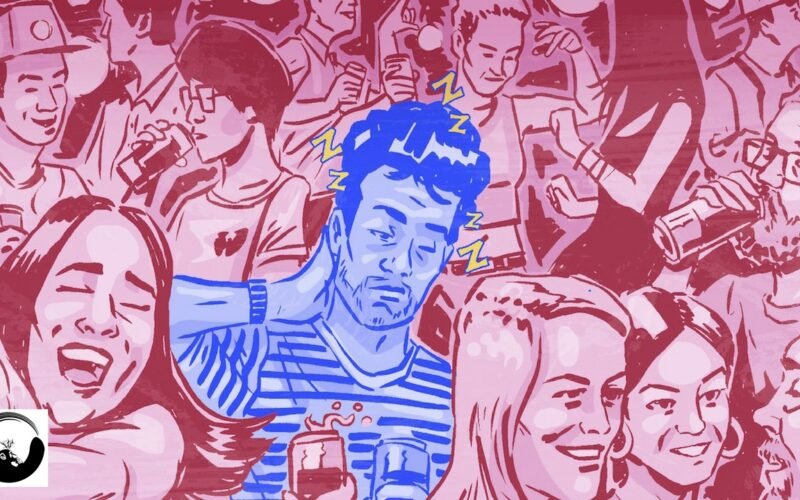If you’re an introvert someone at some point in time has probably asked you what’s wrong? Are you feeling ok? Why are you so quiet? And you silently in your head want to politely say: Would you please SHUT THE F*CK UP? But instead you end up saying the same thing you always say: Nothings wrong. Yes I’m fine. Or I didn’t realize I was being so quiet.
Get the Book – Quiet: The Power of Introverts in a World That Can’t Stop Talking:
http://amzn.to/2l8QsVM
Subscribe: https://www.youtube.com/thoughtmonkeyHQ?sub_confirmation=1
Instagram: https://www.instagram.com/thoughtmonkeyHQ/
Music Credits:
Mad Smoky – Autumn: https://www.youtube.com/watch?v=KdCFpA4H3OU
Script:
The terms introvert and extrovert come from the Swiss psychologist Carl Jung. But our current understanding of the idea comes more from the German psychologist Hans Eysenck. The idea can be thought of as a spectrum. On one side you have the extreme extrovert that is super outgoing, talkative, and energetic while on the other you have the extreme introvert who is very reserved and solitary. Most of us lie somewhere on this spectrum, and some of us even lie in the middle and would be considered an ambivert. Ambiverts get the best of both worlds and have been scientifically shown to be better sales people than both extroverts and introverts, but that’s beside the point.
Some people mistake an introverted person as a shy person. But the two are actually unrelated. Shyness is a fear of social judgment. While introversion is simply how one responds to stimulation – whether social or not. Introverts simply feel more alive in quiet, low key environments.
Part of this has to do with science. First, all humans have something called an Ascending Reticular Activating System which is part of the brain stem that regulates how much stimulation we need to feel good. You see, your brain wants to feel good and needs a certain amount of stimulation in order to reach a happy point. While introverts already have a lot of stimulation going on in their brains, they don’t need as much external stimulation to get to that happy point. The opposite is true of extroverts who have less stimulation going on in their brains and thus need more external stimulation to reach their happy point.
Second, our personality traits are linked to our genetics to an extent. There are studies that show that extroverts share two copies of one allele that introverts lack. Third, brain scans of both show that introverts have a thicker frontal lobe than extroverts which is linked to a tendency toward deep thought and planning over impulsive action, but are also linked to anxiety and depression. Finally, in another study in which extroverts and introverts were asked to look at photos of people, the brains of extroverts responded more strongly when seeing groups of people in photos, implying that introverts don’t need as much social connection to feel good.
The book by Susan Cain, Quiet: The Power of Introverts in a World That Can’t Stop Talking explains how our society is structured for extroverts, and how that might limit the creative progress of it. You see Cain found that a third to half of the population are introverts, but if you look at schools or the work place, nearly all people are expected to work cooperatively in groups and the leaders that emerge are generally the most outspoken and extroverted. And while this happen frequently the research shows introverts may be better leaders due to their careful and thoughtful consideration of ideas and their ability to allow those they lead to feel more autonomous. Some introverted leaders in history include Abraham Lincoln, Ghandi, and Rosa Parks.
Cain also says that solitude is a crucial ingredient to creativity. In fact Charles Darwin is famous for turning down dinner invitations and taking long walks by himself in the woods. You can also see this in most world belief systems – where the likes of the Buddha, Jesus, and Muhammad all go off on a solo journey, finding wisdom, and return with a message. Sounds like the Hero’s Journey huh?
The fact is, is that there are zero correlations between being the best talker and having the best ideas. But our society is structured so that the best talker usually becomes the leader. How did this happen?



